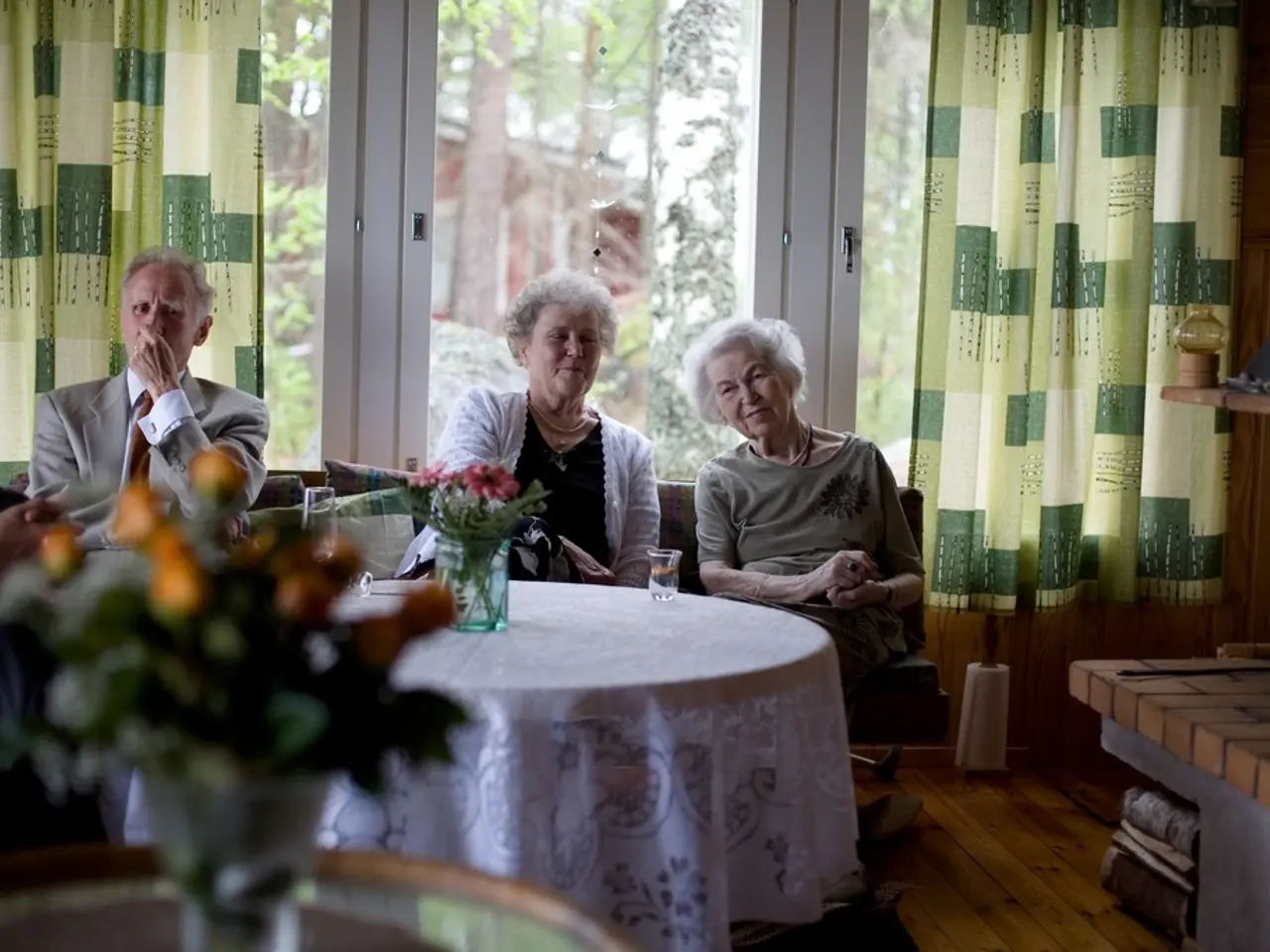Multitude of New Tasks and Permanent Positions Available
=======================================================================================
In 2025, specialty hospitals, such as the St.-Rochus-Hospital, are facing significant challenges in meeting the growing demand for geriatric psychiatry services. The need for mental health services in the elderly is becoming increasingly crucial due to the high and rapidly increasing number of individuals affected by mental illnesses in this age group.
The demand for mental health services is not just a local issue, but a national concern. The number of individuals affected by mental illnesses is on the rise, and the St.-Rochus-Hospital's work in the geriatric psychiatry sector highlights the need for increased investment in mental health services for the elderly.
The St.-Rochus-Hospital is striving to expand its infrastructure to accommodate the growing demand. However, the longstanding Medicaid "institutions for mental diseases" (IMD) exclusion limits federal funding for inpatient psychiatric beds if a hospital has more than a certain number of beds. This exclusion restricts expansion capacity, making it difficult to increase bed availability for geriatric psychiatry patients.
The challenge is not just about infrastructure. There is an ongoing shortage of specialized mental health professionals critical to geriatric psychiatry, such as psychiatric nurse practitioners (PMHNPs), psychiatrists, and clinical specialists trained in elder care. The shortage impedes the ability of specialty hospitals to provide comprehensive, multidisciplinary care tailored to older adults with complex mental health needs.
Meeting the complex needs of elderly psychiatric patients requires age-friendly infrastructure adaptations, such as cognitive assessment spaces, environmental modifications to reduce confusion and agitation, and integrated care teams including psychiatrists, psychologists, social workers, and specialized nurses. Developing these specialized services demands significant investment and training, which many specialty hospitals currently struggle to fully implement.
The staff at the St.-Rochus-Hospital are working to increase their numbers to meet the increasing demand. However, the challenge is particularly prominent in the geriatric psychiatry sector, and specialty hospitals are actively working to improve public understanding of their role in addressing mental health issues in the elderly.
In summary, the key challenges specialty hospitals face in geriatric psychiatry demand growth in 2025 include limited psychiatric bed capacity due to regulatory and funding constraints (IMD exclusion), severe workforce shortages in specialized mental health providers, particularly in rural areas, and the need for infrastructure tailored to cognitive and psychiatric needs of the elderly, requiring specialized training and environmental adaptations. These factors collectively hinder specialty hospitals' ability to meet the increasing demand for geriatric psychiatry services effectively.
Read also:
- Trump's SNAP reductions and New York City Council's grocery delivery legislation: Problems for city residents highlighted
- Forty-year-old diet: A list of meal choices to savor
- Exiled Life's Conundrum: A Blend of Liberation, Disillusionment, and Distress
- Establishing a support network for family caregivers nationwide in the United States





